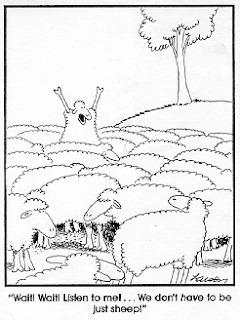Every individual in a culture has a specific social role in his/her community. Looking for a definition one can say, “a social role represents the cultural expectations of how people in a social position are expected to behave” (De Capua & Wintergerst, 2004, p. 194). These expectations defer from culture to culture. The status of a person influences the expectations of the people around and with it the person’s social role. Learning about different cultural social roles, especially about actions that people are expected or not expected to do, was helpful in order to understand the behaviour of English Native speakers, as well as the behaviour of people from other cultures. As students of this TESOL course about pragmatics and culture it is essential to understand these differences from culture to culture. When working with students from other cultures or preparing students from the own culture for staying in an English culture, differences in social roles should be understood. It can prevent misunderstanding and not excepted behaviour. It can also help the teacher to deal with students, as well as their family member, in a way that is appropriate for them. Looking at the German culture, especially the individualistic role of women can be misunderstood by many other cultures. In addition, a German community does not treat other people, who are already older or have a higher social status, with respect, as it is common in many other cultures. When teaching German students the difference of these social roles should be addressed in order to help German students of the English language to be sensitive for differences in social role behaviour. German students might not necessarily need to be aware of these differences, when visiting an English speaking country, as Western cultures are kind of similar. When visiting non-western countries that use English as a medium of communication, however, Germans should be careful with their behaviour to prevent from offending anyone. Native and non-native language learners of the English language can benefit from knowledge about social roles in different cultures. It helps non-native speakers to reach their goal of communicating properly in the new learned language. It also helps native-speakers to understand people from other cultures better and maybe tolerate some mistakes in connection with expected behaviour.
An interesting factor that should be considered, when talking about social roles, is the problem of many societies that force people into a specific social role. The “social-role theory” says that many women and men confirm social stereotypes, because of the behavioural expectations of their society (Vogel, Wester, Heesacker, & Madon, 2003). I believe that students should be aware of that. TESOL teachers can also awake an awareness of injustice, caused by wrong expectations of social roles. Students should not only be aware of differences, but see possible problems in their own society and be open for change.
DeCapua, A. & Wintergerst, A. (2004). Crossing cultures in the language classroom. Ann Arbor, MI: Michigan University.
Vogel, D.L., Wester, S.R., Heesacker, M., & Madon, S. (2003). Confirming gender stereotypes: A social role perspective. Sex Roles, 48(11/12), 519-528.

No comments:
Post a Comment